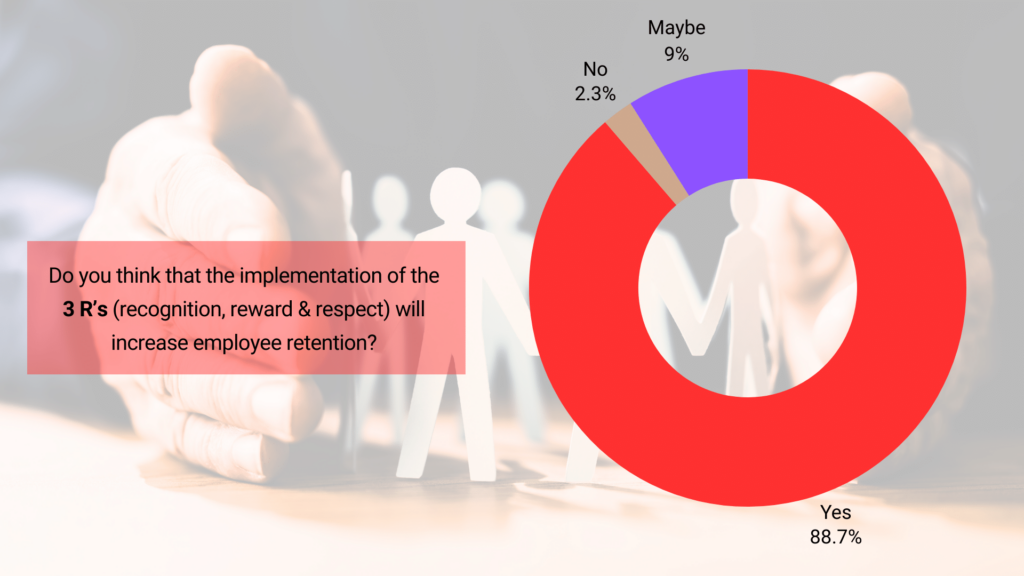As we embrace 2024, the concept of an employee retention strategy becomes increasingly vital amidst new challenges and opportunities within a competitive and evolving workplace.
Businesses are now confronted with the dual responsibility of attracting top talent and effectively implementing employee retention strategies for 2024 that resonate with the modern workforce. This entails a deep understanding of employees’ diverse needs and aspirations, ranging from providing growth opportunities and steering clear of micromanagement to fostering a nurturing organizational culture.
In this article, I will outline 12 strategies businesses can embrace as part of their employee retention program. So that they can remain an attractive option for their workforce and shape a robust, future-ready workforce.
Plan Growth Pathways for Employee Improvement
In the dynamic landscape of 2024, the need for clear and structured career pathways in organizations has never been more important. Providing employees with well-defined growth trajectories is key to enhancing their engagement and loyalty.
This approach clarifies their career prospects within the company and instills a sense of purpose and direction, essential components for job satisfaction and long-term commitment. As employees see a clear path for advancement and skill development, their motivation to excel and contribute meaningfully to the organization increases. This benefits the individual’s career progression and aligns their growth with the company’s objectives, creating a mutually beneficial environment for both parties.

counter the Big Quit with high retention strategies
Leave Overmanagement Behind
Moving away from the traditional overmanagement approach will become a critical factor in employee retention strategies for 2024. Excessive oversight often decreases workplace morale and creativity, as employees feel their autonomy and decision-making abilities are undermined. This can result in reduced job satisfaction and a higher turnover rate.
On the other hand, granting employees more freedom and trust empowers them to innovate and take ownership of their work. Many companies give their employees more room and provide them with an opportunity to work remotely, encouraging them to use time clock apps for employees. They get access to their workers’ time and attendance data and make sure that the tasks are completed in the appointed location and timeline this way fostering trust between management and employees. This shift enhances employee engagement and productivity and fosters a sense of responsibility and loyalty towards the organization.
By embracing a more hands-off management style, companies are finding a balance that respects employee independence while maintaining organizational goals, leading to a more motivated and committed workforce in the ever-evolving 2024 workplace.
Create a Positive Work Culture
Cultivating a positive work culture is becoming a cornerstone of employee retention. A healthy and supportive workplace environment is crucial for employee happiness and commitment.
In 2024, businesses should focus on creating an inclusive and engaging culture that resonates with their workforce’s values and aspirations. Whether promoting diversity, ensuring fair treatment, or fostering a collaborative atmosphere, a positive company culture is a powerful tool for attracting and retaining top talent, making it an indispensable aspect of modern organizational strategy.
Take Care Of Organizational Fit
A good fit for the company’s culture goes beyond matching skills and experience; it combines with its values, ethics, and work environment. When employees resonate with the company culture, they are more likely to feel connected, satisfied, and committed to their roles. This cultural congruence increases employee engagement and a stronger sense of belonging, crucial for long-term commitment.
It is worth knowing that companies that prioritize cultural fit in their hiring process and onboarding tend to have lower turnover rates as employees feel more integrated and valued. This approach fosters a harmonious workplace and builds a strong foundation for long-lasting employee relationships, making it a key strategy for retaining talent in today’s competitive job market.
Employee Retention Strategies For 2024: AI Training
Artificial intelligence (AI) integration in training and development has revolutionized how organizations approach employee learning in 2024. AI-powered training programs offer advanced, personalized learning experiences that cater to each employee’s unique needs and learning styles.
This tailored approach ensures that employees are gaining knowledge and engaging in the most effective learning process. AI’s ability to analyze performance and provide targeted training modules helps employees continuously improve and stay updated with industry trends and technologies.
Promote Skill Development for Career Advancement
In the landscape of employee retention strategies for 2024, promoting skill development for career advancement has emerged as a pivotal element. The importance of nurturing and enhancing employees’ skill sets has never been more pronounced. By encouraging and facilitating the continuous development of their skills, organizations are aiding in their personal growth and significantly boosting their workforce’s collective efficiency and versatility.
As employees acquire new abilities and hone existing ones, they become more valuable assets to their teams and the company. This investment in skill development is a clear testament to a company’s dedication to its employees’ professional journeys, fostering a culture of growth and learning.
Such a commitment is instrumental in enhancing job satisfaction and ensuring the longevity of employees’ careers within the organization.
Employee Retention Strategies For 2024: The Employee Recognition
Different forms of employee recognition can significantly boost morale and a sense of belonging, whether through public accolades, awards, or personalized feedback. Appreciating employees’ efforts and successes reinforces their value to the organization and motivates them to continue excelling. In 2024, companies should find creative and meaningful ways to celebrate their employees’ accomplishments, understanding that recognition is key to building a cohesive, motivated, and loyal team.
To confirm this thesis, I will quote the survey results from the research “A Study on Effective Employee Retention Strategies” by Vartik. H. Duggal and Dr. Dipak Makwana. Research has shown that approximately 88.7% of 133 company respondents believe implementing the three R’s (reward, recognition and respect) will increase employee retention as these are essential tools for building a healthier work environment [1].

Build and Maintain Employee Trust
Trust is undoubtedly the bedrock of a healthy employer-employee relationship and is essential for a positive workplace atmosphere. Establishing trust involves consistent transparency, open communication, and mutual respect.
When employees trust their leaders and the organization, they are more likely to feel secure, valued, and committed. This trust encourages a more open dialogue about challenges and concerns, leading to quicker resolutions and a more collaborative work environment.
Furthermore, trust empowers employees, giving them the confidence to innovate and take initiative. Companies focusing on building trust will likely see higher employee satisfaction and loyalty levels, making it a crucial aspect of employee retention. In a world where employees have numerous options, trust can be the deciding factor that keeps them in an organization.
Put Work-Life Balance First in 2024
The work-life balance is all about reducing hours and creating a flexible work environment where employees can efficiently manage their work and personal commitments. Companies that offer flexible working hours, remote work options, and respect for personal time are more attractive to employees. Such practices demonstrate an understanding of the workforce’s diverse needs and a commitment to their well-being. This approach should be part of employee retention strategies for 2024.
Managers and HR departments should remember that prioritizing work-life balance reduces stress, lowers burnout rates, and creates a happier, more productive workforce. In an era where the lines between work and personal life are increasingly blurred, providing employees with the means to manage both effectively is key to retaining them long-term.
Maintain A Competitive Salary
In a job market where talent has numerous options, remuneration is often a primary factor influencing their stay or departure from a company. Unarguably, competitive pay attracts top talent and conveys the organization’s recognition of its value and contribution. Bonuses, stock options, or profit-sharing schemes enhance the overall compensation package, making it more enticing. These financial incentives demonstrate that the organization is invested in its employees’ success and well-being.
Beyond mere numbers, they symbolize an organization’s respect and appreciation for its workforce. As employees seek job satisfaction, financial stability and growth, offering competitive compensation packages becomes a key strategy in retaining skilled and committed employees in the ever-evolving corporate landscape of 2024.
Keep Remote/Hybrid Work Environment
In 2024, keeping remote and hybrid work models is key to employee retention, offering flexibility that enhances job satisfaction and work-life balance. This approach reflects company trust, granting employees autonomy and boosting productivity as they work in preferred environments.
It especially benefits diverse employee needs, like caregiving or reduced commuting. Adapting to these flexible work conditions is crucial for companies to keep a content and efficient workforce in tune with current work trends.
Increase Job Satisfaction with Additional Benefits
Enhancing job satisfaction through additional benefits like health insurance and retirement plans is another key aspect of employee retention strategies for 2024. These benefits extend beyond the immediate monetary gain and reflect an organization’s commitment to its employees’ long-term well-being and security.
Health insurance ensures employees access to necessary healthcare without financial strain, contributing to their well-being and peace of mind.
On the other hand, retirement plans demonstrate a commitment to their future, ensuring employees feel valued not just for their current contributions but also as long-term members of the organization.
Employee Retention Strategies For 2024 – A Conclusion
To retain employees, companies must demonstrate proactivity, ingenuity, and the ability to adapt to the labor market. By improving employee retention strategies for 2024 and implementing innovative approaches, I believe companies can create loyal and engaged teams prepared for the challenges of a competitive global marketplace.
However, this journey is continuous and requires hard work and adaptability from employers. However, the reward will be employee satisfaction and the resulting loyalty.











